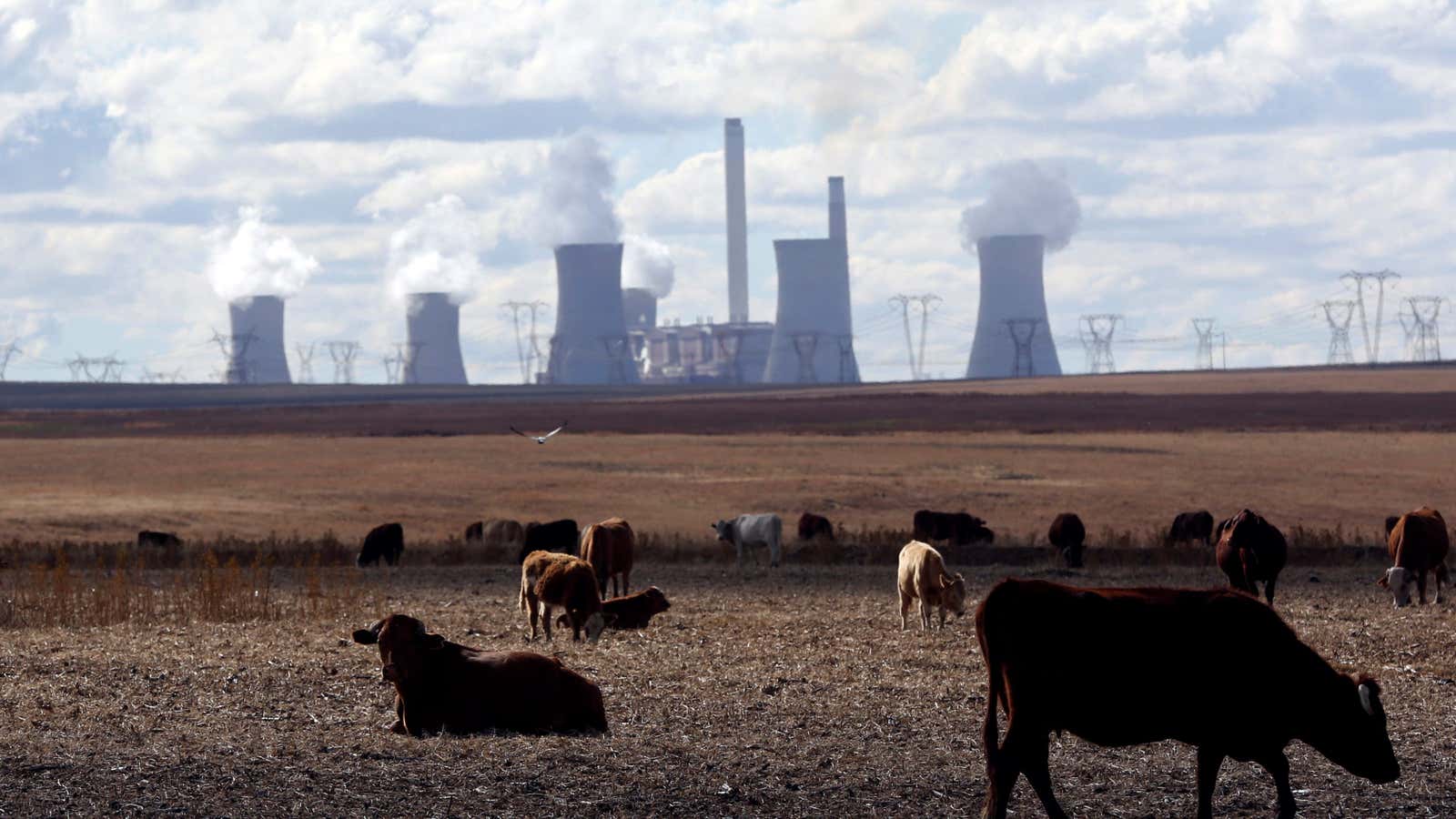On the eve of COP26, the leaders of the 20 biggest economies in the world pledged to stop financing new coal power plants overseas—a bid to drag down emissions from the dirtiest fossil fuel.
The headline left something to be desired. The leaders of the G20 didn’t commit to a timetable to shut down coal in their own countries; of the world’s top 12 coal-burning nations, 11 are members of the G20. Further, their pledge only applied to unabated coal-fired plants overseas: plants that don’t practice carbon capture.
But additionally, the text of the G20 communique (pdf) made clear the decision only applied to public financing of coal plants overseas—to financing from government-run banks, credit agencies, and insurers. This admittedly runs into the billions; between 2013 and 2018, the China Development Bank and the Export Import Bank of China, both public facilities, provided $15.6 billion in financing for coal projects overseas, according to the global energy monitor.
This figure represented 50% of the world’s cross-border financing for coal in that period. But it is still only a small fraction of the overall investment that pours out of the world’s biggest economies and into the coal industry. One estimate, by the Boston University Global Development Policy Center, examined the G7+China bloc—that is: the US, the UK, Canada, Japan, Germany, France, Italy, and China—and concluded that their public financing of new coal plants outside these eight countries is only 3.4% of the overall financing of such projects. By failing to address private companies’ enormous investments into coal, the G20 commitment limited its own impact on the climate.
The private sector is still funding coal
The bulk of the backing for new coal plants still comes from the private sector: banks, hedge funds, pension funds, insurance companies, asset managers, and other firms that still see coal as a resource to be milked. In January, a coalition of NGOs published research (pdf) showing that US institutions hold 58% of the $1.03 trillion invested in companies in the coal value chain, both at home and overseas. In second place was Japan; the top three lenders across the world to the coal industry were Mizuho, Sumitomo Mitsui, and Mitsubishi UFJ, all Japanese commercial banks.
The G20’s move may still have some multiplier effects that reach into the private sector. Public financing “is the essential enabler through de-risking investments for private sector and reducing overall cost of capital,” said Chris Littlecott, an associate director at E3G, a London-based climate think tank. Without public finance, private sector investors would have to carry all the risk directly, Littlecott said—a prospect that may deter them from projects they might otherwise have pursued.
The US and other governments can outlaw coal altogether
As yet, government measures targeting the private sector’s investment in coal tend to be indirect. In January, for instance, France’s central bank announced (pdf) that it would excuse all companies with coal-related activities from its investment and pension portfolio. Last week, the UK said that its biggest companies, including banks and insurers, will have to disclose their exposure to climate-related activities, which would include investment in coal power projects.
Governments haven’t yet adopted direct, regulatory ways of curbing private sector financing in coal—a policy that appears at first glance to be tantamount to compulsory divestment. But worldwide, the inventory of proposed coal-fired plants is already collapsing, according to data compiled by E3G; since the Paris Agreement in 2015, the number of such plants has shrunk by 76%. The end of coal is in sight, Littlecott and his colleagues believe. Given that momentum, G20 governments should easily ban their private companies outright from investing in coal projects overseas—a precursor to the final, necessary step of outlawing coal at home as well.
